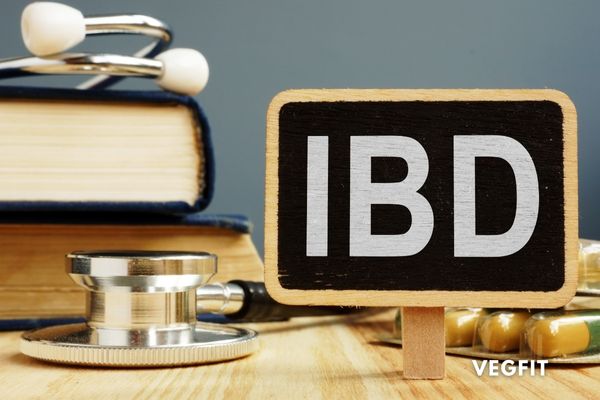A simple digestive problem such as bloating can make you feel uncomfortable. Indisciplined lifestyles along with poor eating habits, alcoholism, and irregular meal timings, coupled with other factors make your gut weak.
A healthy gut system is a must for us as it is single-handedly responsible for better absorption of nutrients, and elimination of waste products. A healthy and well-formed gut can keep your gut health sustainable. It is great to keep the tandem of body, mind and soul in the right order.
The importance of our gut

Gut health stands for the function and balance of bacteria existing in different parts of our digestive tract. Theoretically, organs like the oesophagus, stomach, and intestines work together to allow us to eat and digest food without feeling any discomfort. But many people face trouble while swallowing and digesting food.
This article is specially meant for those who are suffering from nutrient deficiency due to poor gut health. Anyone, aspiring to live a healthy lifestyle can follow this.
What are gut bacteria?

300 to 500 different species of gut bacteria live inside your stomach. When paired with other tiny organisms like fungi, or viruses, they get termed microbial. Healthy gut bacteria impact greatly the overall well-being of a human being. They line our entire digestive tract. They live in our intestines and colon. These bacteria are responsible to regulate our metabolism and guard the immune system.
Gut bacteria play important role in the functioning of human health. It helps our body get the supply ofessential nutrients, helps synthesize vitamin in our system, and helps the aid of digestive cellulose in our body. It also promotes angiogenesis and enteric nerve functioning.
Gut bacteria and Inflammatory Bowel Disease

Irritable Bowel Syndrome or Inflammatory bowel disease is found in a greater number of countries across the world. The main reason for the occurrence of irritable bowel syndrome is the reciprocal interaction between commensal gut bacteria and the host, and it might induce allergies and IBD. Overtly activated Th-mediated cytokine response to commensal bacteria causes chronic intestinal inflammation. There happen disorders in bacterial recognition. It happens due to macrophages and is strongly related to the pathogenesis of IBD. Due to poor gut health ulcerative colitis can also take place.
How does gut health affect your body?

As one grows one’s gut microbiome begins to diversify, which means it starts to contain several microbial species. The higher the microbiome diversity remains, the better your gut health is.
Digesting Breast Milk
Some of the bacteria that grow inside the baby’s intestine are called bifidobacteria. They digest the healthy sugar of the breast milk that is needed for growth.
Digesting Fiber
Certain bacteria digest fibre. It produces a short chain of fatty acids, essential for our body to work properly. Fibre might help us avoid weight gain. It cuts down the risk of diabetes, cancer, and heart disease.
Helps in the modification of our immune system
The gut microbiome also plays a significant role in controlling our immune system. It communicates to our immune cells how our body responds to infections.
Helps Develop Brain Thing
New research has come up with the proposition that the gut microbiome can play part in designing our body functions.
Foods to Improve Gut Health
Here we enlist foods that are great to keep your gut in shape. These are affordable and easily available at Indian grocery stores.
- Beans: Beans act as a prebiotic food. It is consumed highly by many families from different countries worldwide as it is a storehouse of beneficial bacteria. Beans are a rich source of fibre and have many essential elements like vitamins and minerals. They are also a great source of vegetarian protein content. It helps to reduce cholesterol, and blood sugar levels.
- Oats: Oats contain a peculiar, and unique type of fibre that helps to nourish gut bacteria. it is a great food to consume daily. Oats are great for your daily breakfast. Oats Porridge can be prepared in a nutritious way. It can be loaded with fruits and can be prepared in a very tasty way by not adding artificial sweeteners.
- Fruits: There are a lot of fruits available in the market for consumption that can be eaten to increase the microbiome density in our gut. There are a trillion of micro-organisms present in our colon. The fruits we are naming downright are the best possible options to be consumed for better gut health. Here we enlist them – Bananas, Peaches, Pomegranates, Cranberries, Grapefruits.
- Kimchi: Kimchi is a fermented food. It is one of the best natural prebiotics one can ever think of. It is full of lactobacilli bacteria. Consuming the good bacteria present in Kimchi helps us with our digestion. These healthy bacteria smoothen our gut and help our heart to stay healthy. It also helps to soothe irritable bowel syndrome.
- Kombucha: The fermentation process which has been in practice for a very long time to make food is a great source of antioxidants, and prebiotics, or live bacteria that boost the growth of intestinal cells. Fermented Kombucha helps to soothe gut inflammation. It provides the same benefits as that green tea.
- Asparagus: Asparagus is a great prebiotic. It keeps our gut health perfectly in shape. It contains a lot of indigestible fibre inulin which helps in the growth of beneficial bacteria like bifidobacteria, and lactobacilli. It has a great content of vitamin B and inflammation-fighting antioxidants. It is highly recommended that you eat it raw.
- Bananas: Bananas are the most popular food from around the world. There are a hundred types of Bananas present in the market with all its varieties. It provides our digestive system with many short-chain fatty acids. It also controls heartburn.
- Yoghurt: Yoghurt naturally contains many pre-biotic cultures. Those who have dairy intolerance can shift to yoghurt. It is an aid to reduce irritable bowel syndrome. It helps to soothe pain, bloating and major gut health issues.
- Blueberries: Researchers have found that dietary blueberry supplements provided a unique microbial profile. It helps to develop a type of beneficial bacteria known as proteobacteria. This bacterial species is highly related to one’s metabolic rate. The same also helps in controlling several chronic diseases like Kidney anomalies.
- Flax seeds: Flax seed is one of the oldest crops of the Indian subcontinent. There are two types of flax seeds that are brown and golden. Both of these types of seeds are highly nutritious. It is rich in dietary fibre. Cuts down the risk of cancer.
- Walnut: It is well established that walnut reduces heart disease. It has also been proposed by researchers that walnut promotes the growth of a good microbiome in our gut. It has prebiotic potential. When it is combined with a proper diet it brings a horde of heart health benefits.
- Kefir: It is a comparable product to greek yoghurt. Kefir has a little sour kind of taste. It has a thinner consistency than Greek yoghurt. It goes through a fermentation process. The drink is quite popular to protect the shape of one’s digestive tract. It contains a lot of probiotics. You can buy kefir
- Miso: Miso is a Japanese thick paste made from soybeans that have been fermented over time with salt and koji. The dish contains Aspergillus Oryzae fungus which is an excellent source of probiotics. Miso paste goes great as sauce, spread, or soup sticks. It comes in various colours— white, yellow, red or brown. Barley, rye, and buckwheat are a few ingredients which can be infused with miso to make it even more healthy.
- Tempeh: Tempeh is an Indonesian food made from soybeans. It is classified under fermented foods. Many microorganisms are used in the making of tempeh. It is a great source of vegetarian protein. Leaving soya beans other bean varieties can also be used in the making of tempeh. Tempeh can be sauteed and baked to get the best flavour out of it.
Keeping your gut health should be a non-negotiable quality of your lifestyle. Foods that contain amino acids, omega 3 fatty acids, dietary fibre, or probiotic fibre are considered best for your gut, as well as overall health. A healthy microbiome is something that fermented foods give us in a large proportion, which you can think of consuming for keeping your gut healthy.
FAQs
What foods can keep your gut healthy?
Tempeh, fruits, fermented foods, miso, kombucha etc can keep your gut very healthy. Foods containing microbiome bacteria are the best for your gut.
What are the best foods to keep your gut healthy?
Fermented foods contain a lot of microorganisms. They are full of healthy bacteria. They are recommended the most to keep your gut healthy. Kombucha, miso, tempeh, and kefir keep your gut healthy.
What can I do to keep my gut healthy?
To keep your gut healthy you can pick up a healthy diet. Go for foods having a lot of microorganisms. Good bacteria that we get from food are great for our health. Alongside, taking your diet at the right time, having proper sleep, and having an adequate level of water keep your gut healthy.
What foods to eat to keep your gut healthy?
Tempeh, Kefir, fruits, kombucha, miso etc are the best foods you can consume for your gut health.





Leave a Reply